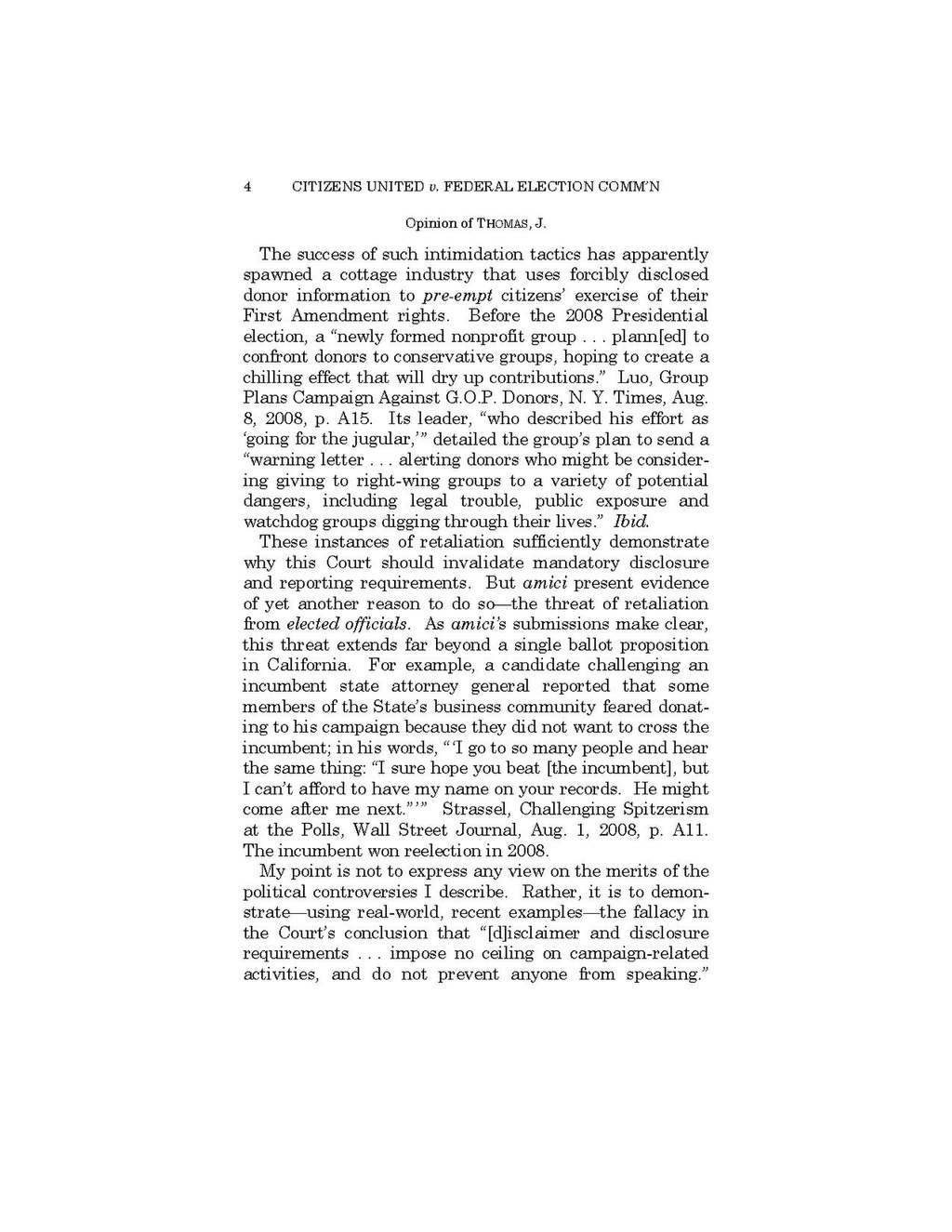Opinion of Thomas, J.
The success of such intimidation tactics has apparently spawned a cottage industry that uses forcibly disclosed donor information to pre-empt citizens’ exercise of their First Amendment rights. Before the 2008 Presidential election, a "newly formed nonprofit group . . . plann[ed] to confront donors to conservative groups, hoping to create a chilling effect that will dry up contributions." Luo, Group Plans Campaign Against G.O.P. Donors, N. Y. Times, Aug. 8, 2008, p. A15. Its leader, "who described his effort as ‘going for the jugular,' " detailed the group’s plan to send a "warning letter. . . alerting donors who might be considering giving to right-wing groups to a variety of potential dangers, including legal trouble, public exposure and watchdog groups digging through their lives." Ibid.
These instances of retaliation sufficiently demonstrate why this Court should invalidate mandatory disclosure and reporting requirements. But amici present evidence of yet another reason to do so—the threat of retaliation from elected officials. As amici’s submissions make clear, this threat extends far beyond a single ballot proposition in California. For example, a candidate challenging an incumbent state attorney general reported that some members of the State’s business community feared donating to his campaign because they did not want to cross the incumbent; in his words, " 'I go to so many people and hear the same thing: "I sure hope you beat [the incumbent], but I can’t afford to have my name on your records. He might come after me next." ' " Strassel, Challenging Spitzerism at the Polls, Wall Street Journal, Aug. 1, 2008, p. A11. The incumbent won reelection in 2008.
My point is not to express any view on the merits of the political controversies I describe. Rather, it is to demonstrate—using real-world, recent examples—the fallacy in the Court’s conclusion that "[d]isclaimer and disclosure requirements. . .impose no ceiling on campaign-related activities, and do not prevent anyone from speaking."
